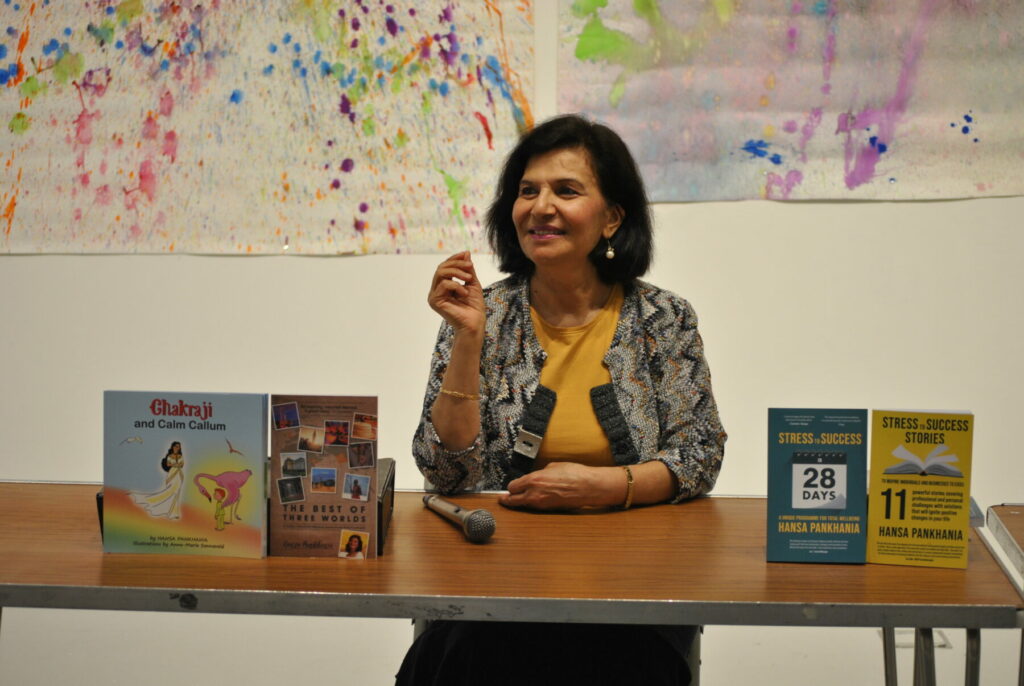10 Tips to Let Go of Anger
I have written many blogs about anger management. In them I discuss a few simple techniques to deal with anger, such as breathing and counting to ten, walking away, offloading your feelings by writing them out, going for a brisk walk and so on. These are all valid and effective techniques, and I continue to promote them with my clients. But letting go of anger is not just about those simple techniques – there is a lot more to anger.
Anger goes deep and as far back as your childhood and the messages passed on by the people around you – parents, grandparents, siblings, teachers and so on.
Ask yourself this question: What do your daily actions, attitudes, beliefs and character say to your children and the people around you? Is what you do, contributing to making them angry or diffusing anger?
Attitudes and behaviours
Let’s talk about some attitudes and behaviours we can cultivate to make us less angry and more peaceful. When you have mastered these, the effects will cascade, fostering calm and peace in others. The application of some of the below may not be as easy as it sounds, but it is not impossible either.

1. Use compassion rather than confrontation
Most of us have witnessed a scenario when one person starts shouting, somebody then shouts back, anger escalates and sometimes even becomes physical. Imagine the opposite, one person shouts and displays aggression and the other talks back calmly and with kindness. The chances are the anger dissipates, breaking the confrontational cycle. Acting from compassion is more effective than acting from pity or hate.
Try to believe that no one is the enemy, as we are all connected. It makes sense to seek a solution instead of proving we are right or better than others. The angry other person is still an individual with worth and value, so connect from this point, rather than from outward aggressive behaviours.
‘Don’t be angry until you have walked in their shoes for a few miles’ (Mahatma Gandhi)
Take an example of a girl who was bullied for being overweight. Previously, whenever she was bullied she retaliated, which sparked the bullies to bully her more and the situation kept escalating.
Out of desperation, she tried a different approach. She responded with love and kind words to the bullies which disarmed them of the power that they held over her and slowly the situation calmed down. Loving the hater is not easy but can be done.
2. Learn assertion skills
Anger can lead to an inability to express our needs calmly and clearly. You speak loudest by not yelling, and by demonstrating your point with constructive action.
Learn to say no. A simple ‘no’, uttered with conviction is better than a superficial ‘yes’. How can we change anything unless we have the courage to say what is wrong?
Think carefully before you respond to an angry person. Think carefully before you respond to anyone for that matter, and remember that your words will hurt or help the world. Find the right words before you speak.
3. Make time for solitude
Nowadays, children go from school to a multitude of different activities (gymnastics, piano, extra tuition etc), then come home, have a rushed dinner, do their homework, and then go to bed. Where is the time for rest and solitude? Is it any wonder that they end up as angry adults? Life does not need to be faster, but more peaceful. Having regular time away in the quiet to make sense of the information overload and experiences of the day is pertinent. In the absence of this downtime, anger builds up, leading to confusion and lack of direction. This is equally true of adults in our fast-paced culture.
Allow yourself and your loved ones the opportunity to learn mindfulness and meditation to appreciate the benefits of solitude.
4. Make time for self-care
Anger is often triggered when you are tired and run down so take care of yourself. As well as keeping healthy physically, work on being morally and ethically strong. In the absence of this, it is easy to feel judged by others and to judge the self harshly. Anger stems from the fear of being judged and judging others.
5. Stay connected to humans
In this digital world and the influx of social media, the danger is that we lose connection with real people. Delving into more and more screen time means we are neither alone as we have hundreds of virtual friends but not truly connected either. A sort of state of flux. Parents set the example of not being there for their children when constantly glancing at their phones or texting and engaging in social media.

Pick the phone up, make that long overdue visit and connect with real people or we will lose the skill of human communication. This lack of connectivity and emotional expression leads to frustration and anger.
Connecting is not just talking to real people but listening to them as well. Most of us are familiar with ‘you are not listening’ retorts from an angry child or adult. If people have full attention when they need it, they will be less likely to be angry and lash out.
Emotional release and permission to express oneself safely enhance relationships and help build a connected rather than competitive community. The reverse generates anger and insecurity.
6. Build on spiritual strength
Aim to relate with love and truth as hate spurs anger and revenge has no gains.
‘An eye for an eye makes the whole world blind’ (Mahatma Gandhi).
Listen well and gain the other person’s perspective, working towards forgiveness. Forgiveness is never about letting the other person off the hook. It is more about you letting go of the burden of holding on to the anger indefinitely, which would eventually have repercussions on your mental and physical health.
Make a goal every day to be better than what you were the day before.
7. Self-worth versus acquisitions
For many people, there is a large emphasis on acquiring materialistic belongings. Acquisitions do not make us better people or build inner strength and confidence, the lack of which creates anger. There is more joy in the things we create. The current ‘throw-away’ culture and excessive consumer choices mean that we buy and discard a lot of items. Possessions do not define our worth, but the things we create do. We may spend more time choosing from the twenty brands of biscuits in the supermarket rather than the pleasure of eating a few biscuits we have baked ourselves. As they say, less is more.
The least angry people are not the ones with the most money but those who appreciate the beauty and goodness around them.
8. Integrity and humility
Parents can help children avoid lies by treating their desires with honesty and respect. If parents lie, they are setting an example that this is an acceptable coping strategy. Lies are like sand, they cannot create a solid foundation, only a shaky and insecure one. There will be anger when the sandcastle eventually topples. Anger often dissipates when one senses the truth in one’s motives and the authenticity of passion.
We all like to take credit for our achievements but the truth is nobody succeeds on their own. Recognise and appreciate other people’s contributions. As individuals, we grow and flourish when connected to the larger flow of a family and community.
9. Model love and respect
Children learn certain things from textbooks, but they can learn more from the examples and characters modelled by the significant others around them. Live what we want our children to learn. Children will be less angry and will flourish if they are respected and not asked to undertake something that the parents would not undertake themselves.
Often, we are too engrossed in leaving a material inheritance or legacy – the house, business, or jewellery – and do not have time to consider the ethical or moral legacy; the parenting style and messages that foster love and respect. The lack of this often resounds for generations and causes much anger and sadness. I feel sad when I hear this from clients, ‘My mum never hugged me or said that she loved me, because that is how she grew up. My grandma was the same’.
Love does not necessarily need words, it can be expressed in actions, such as not making people feel they are a burden or sacrifice. Instead, show them they are your ultimate joy, pleasure and priority in life. People sense our love as well as our distraction and resentment of them, simply by the look in our eyes, our expressions and our daily actions.
‘An ounce of practice is worth more than tons of teaching’ Mahatma Gandhi
10. Acceptance
Discrimination means we choose not to see the value of people who may appear different to us rather than viewing people with dignity and seeing the good in them. Learn about diversity and be open-minded and curious about different cultures.
As humans, we all have imperfections and weaknesses, which make us angry, but a simple gesture of love and tenderness can set off a transformation that diffuses the anger. Focusing on someone’s shortcomings and criticism may backfire and bring about a defensive or rebellious reaction. In contrast, giving praise, admiration, gratitude, generosity and encouragement will promote positive behaviour.
Final thoughts
‘When you point a finger at someone, you have three fingers pointing back at you’ Mahatma Gandhi.
Instead of looking at what is wrong with others, we need to look at how we can become better human beings and make a difference to people and the planet. Look beyond labels and find good in all. Look for commonalities rather than differences which fosters anger. Ultimately, we are all outsiders to someone or another.
Finally, anger is like electricity, if used well it can fuel you to move forward and get to a better place. If we abuse or misuse it, it can kill us.
(This chapter is inspired by the book Gift of Anger by Arun Gandhi, who is the grandson of Mahatma Gandhi)

About Hansa Pankhania
Hansa is a Speaker, Corporate Wellbeing Coach and Author of 10 published books for adults and children.
In her books, Stress To Success In 28 Days and Stress To Success Stories, she is passionate about sharing natural wellbeing techniques that are cost-free, and easy-to-implement but nourish your body, mind, and soul in powerful ways.
Her Chakraji Children’s Relaxation Series passes natural wellbeing tips to primary age children using colourful illustrations.
She has also published her memoir Best Of Three Worlds about being born in Kenya as a British subject of Indian origin and the fusion of three histories and cultures.
Her latest book – Best Of One World – 60 steps to a sustainable, meaningful and joyful life helps you save money and boost your wellbeing and that of our planet too.
All her books are available through Amazon and her websites.
Visit- www.hansapankhania.com for her books
And – www.aumconsultancy.co.uk for Wellbeing Services
Text- +44(0)7888747438

